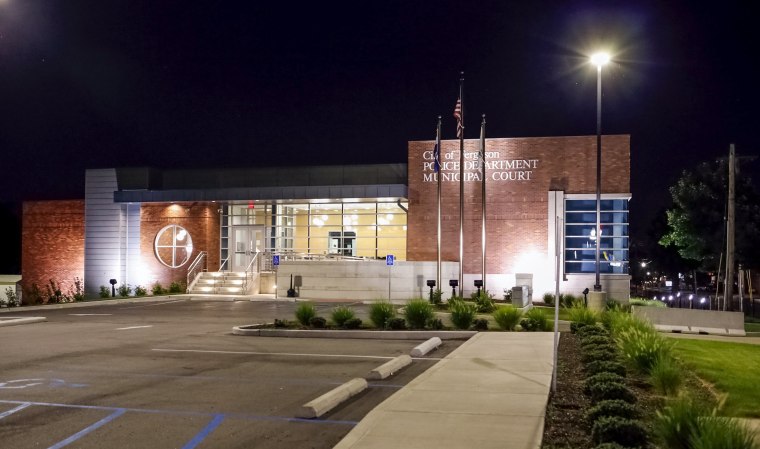A growing movement against the jailing of poor offenders who cannot pay fines has hit New Hampshire, where the local American Civil Liberties Union says it has uncovered a pattern of unconstitutional moves by judges.
The state ACLU chapter said in a report released Wednesday morning that it found cases in almost every county of indigent defendants who were incarcerated without any attempt to determine why they couldn't pay and were denied an opportunity to be assigned a lawyer. "The judges simply put them in jail," the report says.
That's illegal, and resembles methods used to throw people into debtors prisons, which were abolished in the mid-1800s, the ACLU of New Hampshire said.
The state judiciary says it agrees that no one should go to jail for failing to pay a fine, but disputed the report's conclusions, saying it made it seem as though the problem was worse than it really was.
Across the country, the ACLU and other civil rights organizations are pressing local courts to curtail their reliance on fines, fees and surcharges related to traffic tickets and other offenses that normally would not result in jail time. The groups have documented how people who can't pay those fines are regularly put behind bars as an alternative, a strategy they say treats the poor unfairly and deprives them of due process.
National attention was drawn to the issue after the shooting of a black man by a white police officer in Ferguson, Missouri sparked a federal civil rights investigation. That probe resulted in a U.S. Justice Department report that exposed how the city boosted revenue through heavy-handed enforcement of petty offenses, a burden that fell disproportionately on the town's poorest citizens, many of whom ended up behind bars.
Civil rights groups have targeted court systems in Louisiana, Alabama, Ohio, Washington, Colorado and Georgia. Several of the states have responded with reforms.
The U.S. Supreme Court has repeatedly deemed it illegal to incarcerate people because they can't repay a debt. In 1983, the court ruled courts must ask defendants about their ability to afford fines, and jail only those who willingly defy the system.
The ACLU of New Hampshire said it found repeated violations of that ruling.
The group began its investigation last year, after getting tips from public defenders. It compiled records on 289 cases in 2013 in which inmates had been taken into custody because they could not pay a fine. Instead of seeking transcripts for all the cases, the group said it randomly selected 39 for closer analysis, then extrapolated those findings to produce a portrait of the situation statewide.
That analysis found an estimated 148 cases of defendants sent to jail for being unable to pay fines without getting a hearing or a lawyer, the New Hampshire ACLU said. The cases were spread across the court system, indicating that the numbers were not the result of a rogue judge or court, the report said.
But Circuit Court Administrative Judge Edwin W. Kelly said the conclusions were unfair and lacked perspective. In 2013, he said, about 83,000 fine-based cases moved through the system, making the 148 cited by the ACLU a blip.
"I don't want to minimize the experience for those 148 people, but, put in context, it is not in any way indicative of a system-wide problem, which is what the report concludes," Kelly said.
Kelly said he planned to meet with representatives of the New Hampshire ACLU on Friday to talk about ways to prevent unfair jailings.
"I'm absolutely committed to getting this down to zero, because even one person going to jail unjustifiably is too many," he said.
The ACLU says it will ask for new rules that make sure the hearings and lawyer assignments happen.
"Our hope is that when there’s a lawyer present, that will create a check on the system such that the lawyer will advocate for his or her client and makes sure the judge is going through a meaningful process to determine the ability to pay before sending that person to jail," Gilles Bissonnett, the group's legal director, said.
New Hampshire Supreme Court Chief Justice Linda Stewart Dalianis said in a statement that she was confident Kelly and the ACLU "will reach agreement on what, if any, changes to our rules, procedures or statutes should be recommended to the Supreme Court.”

